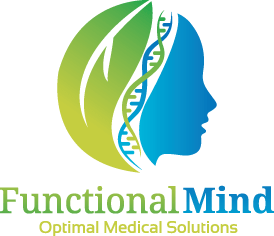Micronutrient Deficiency and Depression: The Missing Link to Mental Health
When we think about mental health, nutrition isn’t always the first thing that comes to mind. However, the connection between what we eat and how we feel is undeniable. Micronutrient deficiency—a lack of essential vitamins and minerals in the diet—can profoundly affect brain function, mood, and emotional well-being. Understanding this connection is crucial to addressing the root causes of depression and supporting mental resilience.
What Are Micronutrients?
Micronutrients are vitamins and minerals that our bodies need in small amounts but are essential for nearly every process in the body, including brain health. Unlike macronutrients (proteins, fats, and carbohydrates), which provide energy, micronutrients act as co-factors that regulate cellular function, neurotransmitter production, and hormone balance.
When these vital nutrients are missing, the brain can struggle to perform its tasks efficiently, leading to mood disorders and symptoms of depression.
Key Micronutrients and Their Role in Mental Health
- B Vitamins (B6, B9, B12): Mood Boosters
- B vitamins play a critical role in the production of neurotransmitters like serotonin and dopamine, which are vital for regulating mood, energy, and focus. A deficiency in B vitamins can lead to fatigue, irritability, and depressive symptoms.
- Where to Find Them: Leafy greens, eggs, poultry, whole grains, and fortified cereals.
- Magnesium: The Relaxation Mineral
- Known as nature’s “relaxation mineral,” magnesium helps manage the body’s response to stress by regulating cortisol levels and calming the nervous system. Low magnesium levels are linked to anxiety, insomnia, and depression.
- Where to Find It: Nuts, seeds, dark chocolate, legumes, and leafy green vegetables.
- Zinc: Brain Support for Emotional Stability
- Zinc is crucial for cognitive function and emotional regulation. A lack of zinc can lead to difficulty concentrating, mood swings, and symptoms of depression.
- Where to Find It: Lean meats, shellfish, legumes, nuts, and dairy products.
- Vitamin D: The Sunshine Vitamin
- Vitamin D is essential for brain health, and deficiencies are strongly correlated with seasonal affective disorder (SAD) and depressive symptoms. This is especially common in areas with limited sunlight exposure.
- Where to Find It: Sun exposure, fortified foods, fatty fish like salmon, and egg yolks.
How Micronutrient Deficiency Leads to Depression
Micronutrients are vital for neurotransmitter synthesis, the chemical messengers in your brain that influence mood. Without these nutrients, the brain can’t produce enough serotonin, dopamine, or GABA, which are critical for regulating emotions and maintaining a sense of well-being.
Additionally, nutrient deficiencies can lead to increased oxidative stress, inflammation, and imbalances in the gut microbiome—all factors that are now known to contribute to depression.
Addressing Micronutrient Deficiency
The good news is that micronutrient deficiencies can often be corrected through dietary changes, supplements (when necessary), and mindful lifestyle habits.
Tips for Supporting Mental Health Through Nutrition:
Focus on Whole Foods: Incorporate a variety of fruits, vegetables, lean proteins, whole grains, and healthy fats into your diet.
Get Your Sunshine: Aim for 10–30 minutes of sun exposure daily or consider a Vitamin D supplement during darker months.
Include Brain-Boosting Foods: Add magnesium-rich nuts and zinc-packed legumes to your meals for an extra mental health boost.
Consult a Professional: If you suspect a deficiency, work with a healthcare provider to identify gaps and create a personalized plan.
Micronutrient deficiency is an often overlooked factor in mental health, yet it can play a significant role in the development and management of depression. By focusing on nutrient-dense foods and addressing potential deficiencies, we can support both physical and emotional well-being.
If you’re struggling with symptoms of depression and want to explore holistic approaches to mental health, the team at Functional Mind LLC is here to help. Visit us to learn more about how nutrition, lifestyle, and functional medicine can unlock a path to better mental health. Book your discovery call with Dr. Achina Stein HERE.
